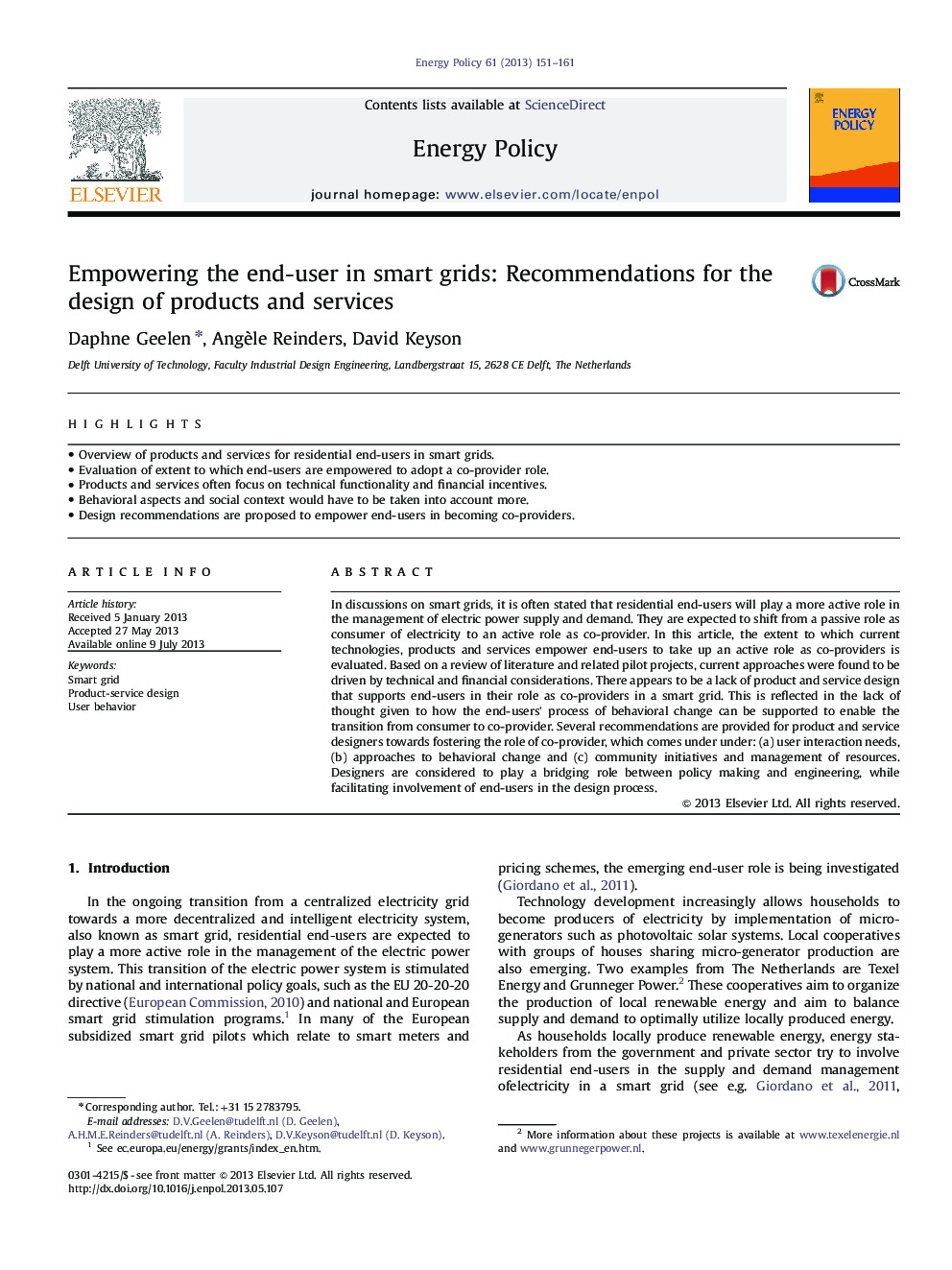| Article ID | Journal | Published Year | Pages | File Type |
|---|---|---|---|---|
| 7404005 | Energy Policy | 2013 | 11 Pages |
Abstract
In discussions on smart grids, it is often stated that residential end-users will play a more active role in the management of electric power supply and demand. They are expected to shift from a passive role as consumer of electricity to an active role as co-provider. In this article, the extent to which current technologies, products and services empower end-users to take up an active role as co-providers is evaluated. Based on a review of literature and related pilot projects, current approaches were found to be driven by technical and financial considerations. There appears to be a lack of product and service design that supports end-users in their role as co-providers in a smart grid. This is reflected in the lack of thought given to how the end-users' process of behavioral change can be supported to enable the transition from consumer to co-provider. Several recommendations are provided for product and service designers towards fostering the role of co-provider, which comes under under: (a) user interaction needs, (b) approaches to behavioral change and (c) community initiatives and management of resources. Designers are considered to play a bridging role between policy making and engineering, while facilitating involvement of end-users in the design process.
Keywords
Related Topics
Physical Sciences and Engineering
Energy
Energy Engineering and Power Technology
Authors
Daphne Geelen, Angèle Reinders, David Keyson,
